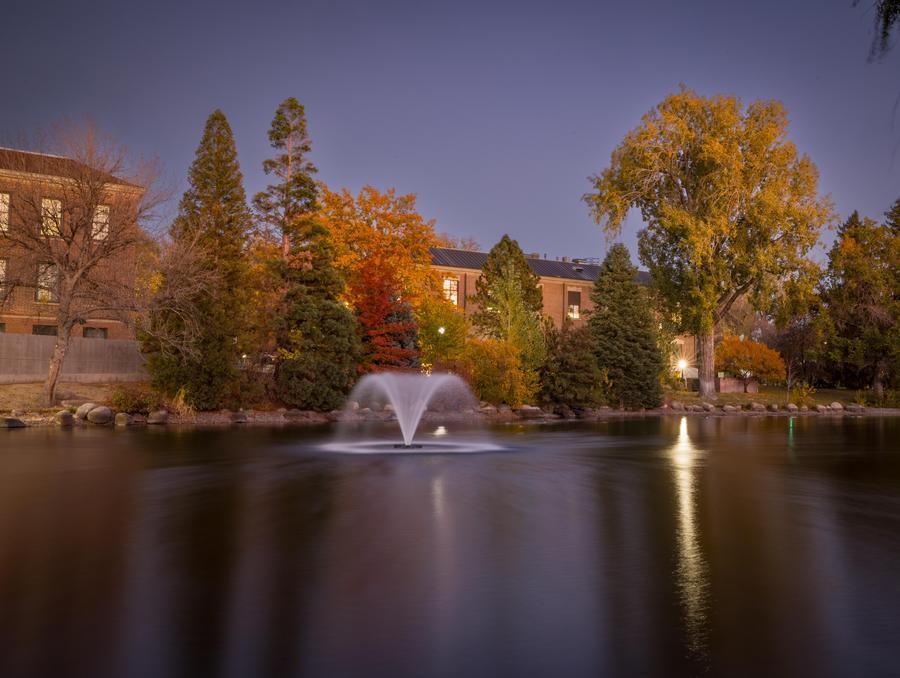Why does Nevada need greenhouse and hoop house education?
Extension class offered April 24 and April 26
If you have ever grown crops in Reno or other high-desert areas, you know climate plays an important and often decisive role in production. During spring, gardeners watch the weather for unforeseen freezes or flooding. The pendulum swings the other way as well, with blistering hot summers that dry out and burn crops.
With our extreme climate, vegetable and fruit growers battle with when to plant, protect and harvest their crops. Most years, it's a gamble, and many gardeners have lost money and time on frost-damaged crops.
With the challenges of growing in our region, growers are limited to short seasons and lighter crop harvests. If growing for home use, the gamble may be worth it, but growing for sale can be risky in northern Nevada without season extenders.
I recently attended the Nevada Small Farm Conference where I had the pleasure of listening to Andrew Mefford, editor of Growing for Market magazine and author of The Greenhouse and Hoophouse Grower's Handbook, discuss growing in greenhouses. During his talk, I was struck by the fact that the Netherlands, one-third the size of West Virginia, is the second leading food producer in the world, next to the United States. How can such a small country produce so much food? The answer is, growing in greenhouses and knowing how to utilize space efficiently.
In his book, Mefford points out the long distances food has to travel before being purchased at grocery stores. Because most of our produce comes from the same regions in California and Arizona, produce needs to be easily and profitably shipped. The tomato is now bred to be firmer and less easily bruised for successful transport, rather than for flavor. If you've ever tasted a homegrown tomato next to one from a grocery store, you know what I mean by the term "homegrown flavor."
The increase in locally grown food can offer produce with homegrown flavor in our stores as well as at local farmers' markets. It seems people are becoming more and more aware of the benefits of home- or small-farm-grown crops, as seen by the increase in farmers markets across the U.S. Mefford states that in 1994, there were 1,755 farmers markets in the U.S., by 2014, that number had risen to 8,268.
In the high-desert region of Nevada, we need proven methods to extend our growing season to keep up with the expanding market for locally grown produce. What better way than with greenhouses and hoop houses.
As a land-grant university and educational arm to the community, our university has a responsibility to provide Nevada's communities the education they need to make this transition. We've already seen many hoop houses and greenhouses pop up around the city, but it's only a matter of time before it's a staple of Nevada gardening.
As the outreach unit of the University of Nevada, Reno, Cooperative Extension's mission is to provide outreach and education to help address community needs. Our programs fulfill this mission by sharing research-based information through educational classes, such as those offered by Cooperative Extension's Grow Your Own, Nevada! Program.
The program, based in Washoe County and broadcast by interactive video across the state, provides education about edible gardening and crop production. Each spring and fall, Cooperative Extension faculty, staff and Master Gardener volunteers present a four-week series of eight classes on anything from controlling pests in the vegetable garden to greenhouse building and design. Topics are chosen based on participant and public feedback and are different every year and every season.
Next week's classes are about hoop houses/greenhouses, are taught by Heidi Kratsch, Cooperative Extension state horticulturist. The class on April 24 will focus on designing and building hoop houses/greenhouses, while the class on April 26 will focus on how to grow vegetable crops in hoop houses/greenhouses. Both classes are held 6 - 8 p.m. at the Washoe County Cooperative Extension office, 4955 Energy Way in Reno. The class fee for those attending in person is $15 and covers class supplies, materials and refreshments.
We hope we can continue this trend of greenhouse and hoop house education in our community, and see our local farms and small-production growers thrive.





